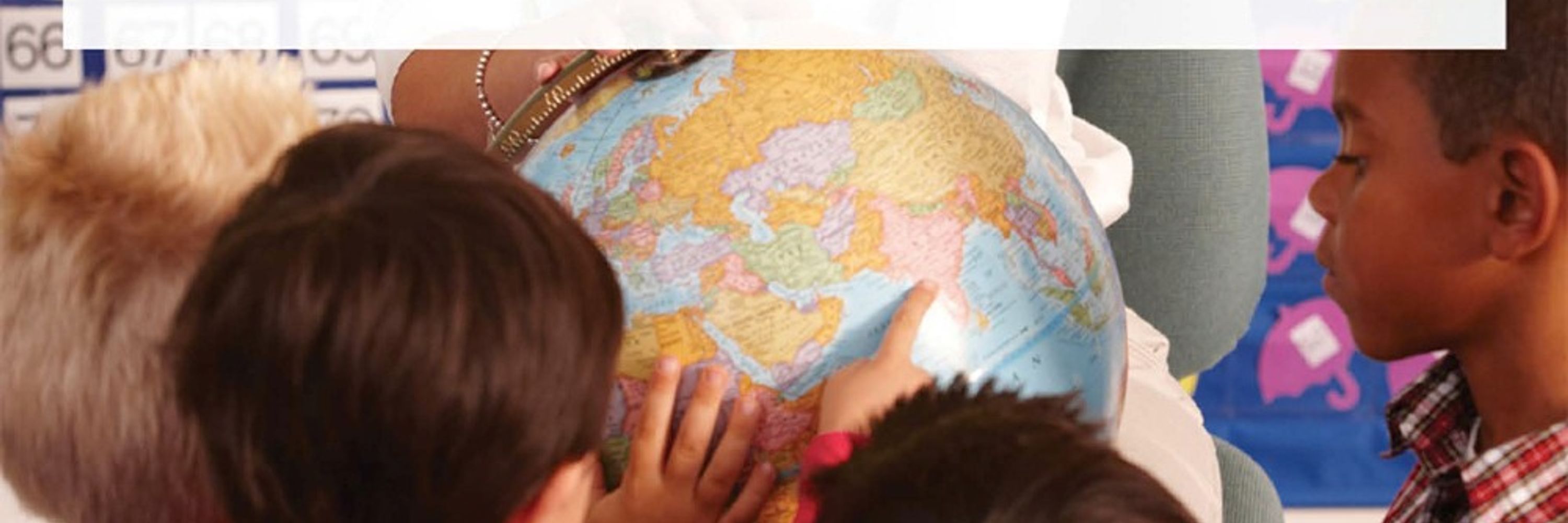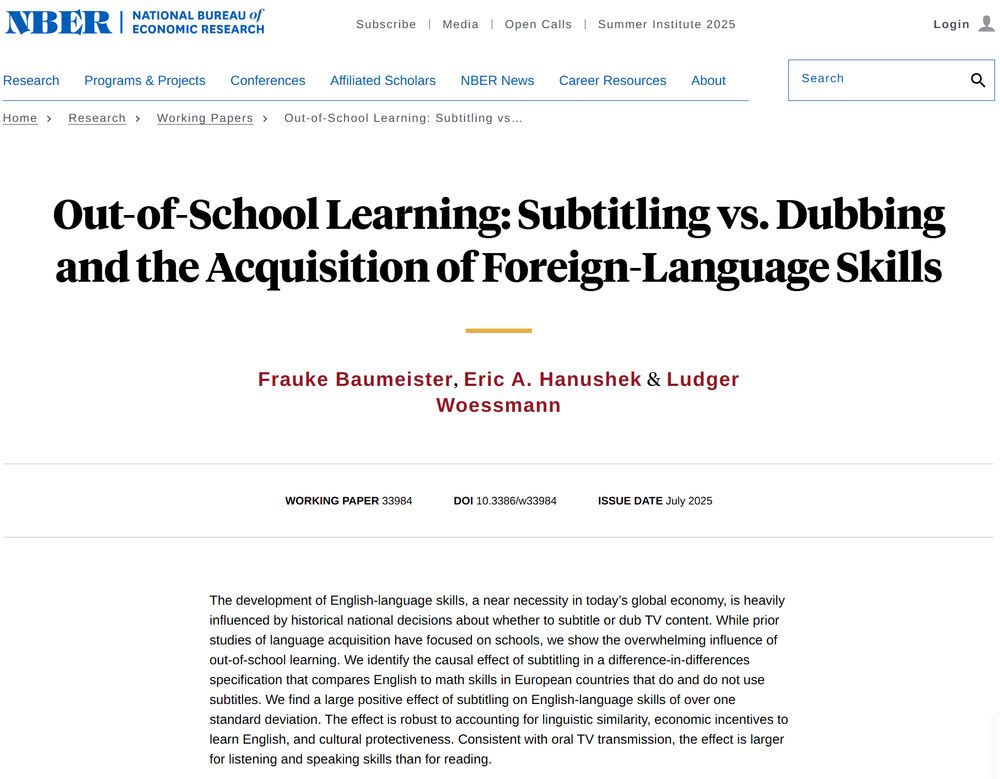
Professor of Economics, University of Munich
Director, ifo Center for the Economics of Education
https://sites.google.com/view/woessmann-e
Ludger Wößmann is a German economist and professor of economics at the Ludwig Maximilian University of Munich (LMU). Moreover, being one of the world's foremost education economists, he is the director of the ifo Center for the Economics of Education at the ifo Institute. Beyond the economics of education, his research interests also include economic growth and economic history. In 2014, Wößmann's empirical research on the effects of education and his corresponding contribution to public debate were awarded the Gossen Prize, followed by the Gustav Stolper Prize in 2017. .. more

➡️ New Working Paper:
Out-of-School Learning: Subtitling vs. Dubbing and the Acquisition of Foreign-Language Skills
w/ F. Baumeister & E. Hanushek
www.nber.org/papers/w33984
A 🧵 1/12
Reposted by Ludger Woessmann, Simon Wiederhold

Our Workshop on Field Experiments in Economics and Business celebrates its 5th anniversary with FANTASTIC keynote speakers: @peterbergman.bsky.social (UT Austin) and Esther Duflo (MIT) 🎉🙌
📍 Sept 7–8, 2026 at TUM Campus Heilbronn (pre-workshop get-together Sept 6).
Reposted by Ludger Woessmann

✨What Facebook data reveal about patience & educational achievement
✨Religious education has long-term effects
✨Good schools help disadvantaged children
...& more!
👉 sendlx.com/display.php?M=111332033&C=ff6ce63f422bb23d840c4ce5648c1c70&S=201333&L=1198&N=111605
Reposted by Ludger Woessmann

Reposted by Jonathan Haidt

Strong public support to restrict social media for children in Germany
www.afterbabel.com/p/strong-pub...
A huge majority of adults favors a minimum age for social media – and even adolescents themselves see harm from social media



💶 20,9 Billionen Euro an zusätzlichem BIP bis 2105 (aktuelle Lebenserwartung)
≈ 5x derzeitiges BIP
≈ 10% des diskontierten BIP
➡️ So sehr lohnt es sich, Verbesserung der Bildungsleistungen zu priorisieren
3/3

1️⃣ 50% weniger Schüler:innen, die Mindeststandards in Deutsch & Mathematik nicht erreichen
2️⃣ 20% mehr, die Regelstandards erreichen
3️⃣ 30% mehr, die Optimalstandards erreichen
2/3


👉 Das Erreichen der Ziele „Bessere Bildung 2035“ würde rund 21 Billionen Euro an zusätzlicher Wirtschaftsleistung bringen
"Volkswirtschaftliche Erträge besserer Bildung"
mit Katia Werkmeister für die @bertelsmannst.bsky.social
www.ifo.de/publikatione...
1/3
Reposted by Ludger Woessmann, Simon Wiederhold

It’s finally official: I’m starting a new job – and it’s the BEST! 🥳
I’ve joined the ifo Institute Munich as Deputy Director of the @ifoeducation.bsky.social (tenured) and have been appointed Associate Professor (tenure-track) at @lmumuenchen.bsky.social / @econmunich.bsky.social.
Reposted by Robert Lehmann

"Bildungsökonomen, so sagt es zumindest der Soziologe Aladin El-Mafaalani, seien derzeit die lautesten Bildungsaktivisten."
table.media/heads/ludger...
www.linkedin.com/feed/update/...
@table.media
Reposted by Robert Lehmann
www.ifo.de/en/cesifo/ev...
und auf www.youtube.com/watch?v=R4P7...
Expertise, Artificial Intelligence, and Work of the Future
www.ifo.de/en/cesifo/ev...
Reposted by Robert Lehmann




Skills, Tasks & Technologies in the AI Era
has come to a close. What a blast of outstanding research, new insights & lively discussion! Tremendous thanks to all contributors!
Check out the exciting program:
www.ifo.de/en/cesifo/ev...

